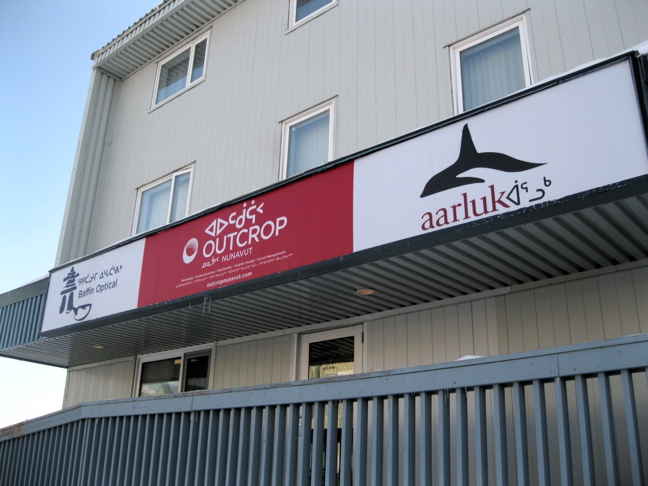Nunavut language laws to be fully in force by July 9, minister says
Sections of Nunavut’s Inuit Language Protection Act and the Official Languages Act that enforce the use of Inuktut in the private sector will come into force on July 9 this year, the territory’s minister of languages, George Kuksuk, recently announced in the legislative assembly.
Kuksuk described July 9 as the government’s “target date,” chosen for its “symbolic importance” for Nunavut Inuit as the day the Nunavut Land Claims Agreement became law in 1993 and now celebrated as Nunavut Day.
Kuksuk referred to sections of both acts that apply to private businesses offering services to the public, specifically sections 3 and 5 of the Inuit Language Protection Act and part of section 12 of the Official Languages Act.

Iqaluit-Sinaa MLA Paul Okalik said March 9 that Kuksuk had previously reported target dates of April 1, 2016 and then April 1, 2017.
“When we arrive at that date [July 9] I will finally believe him, since this is the third time the target date for implementation has been delayed,” Okalik said.
Okalik questioned the involvement of the Inuit Uqausunginnik Taiguusiliuqtiit, the Inuit language authority. The public agency is responsible for standardizing the Inuit language.
Kuksuk had highlighted the language authority’s “important contribution” toward implementing the language statutes, in addition to the work of Office of the Languages Commissioner and three other government departments.
“Just recently, I have been trying to recognize an engineer, but we still have no comparable Inuktitut term for that profession,” Okalik said.
“When are we going to have a full terminology in Inuktitut and utilize it?” he asked. “I know the entity [Inuit language authority] will be making recommendations on terms.”
“I can’t reply on behalf of the Inuit language authority,” Kuksuk answered. “They are an independent body. They have their own coordinator and staff who work on terminology or other programs, and so on. We’re just waiting for the Inuit language authority and that’s how it works.”
The minister said the government believes the new July target date “will provide private sector organizations additional time to prepare for compliance, while informing the public and parties involved in the language legislation and requirements.”
Nunavut’s Department of Culture and Heritage, in collaboration with other government departments, has lined up several “implementation activities” geared to prepare businesses and private organizations as the statutes come into force, Kuksuk said. They include:
• a public education and marketing campaign to encourage and promote the use of Inuktitut;
• a “small incentive grant program” to assist Nunavut-based private organizations with their language obligations;
• acknowledging achievements and compliance with language obligations through an awards program administered by the Inuit language authority; and,
• assistance to businesses on the correct usage of terminology and orthography on signs and documents.